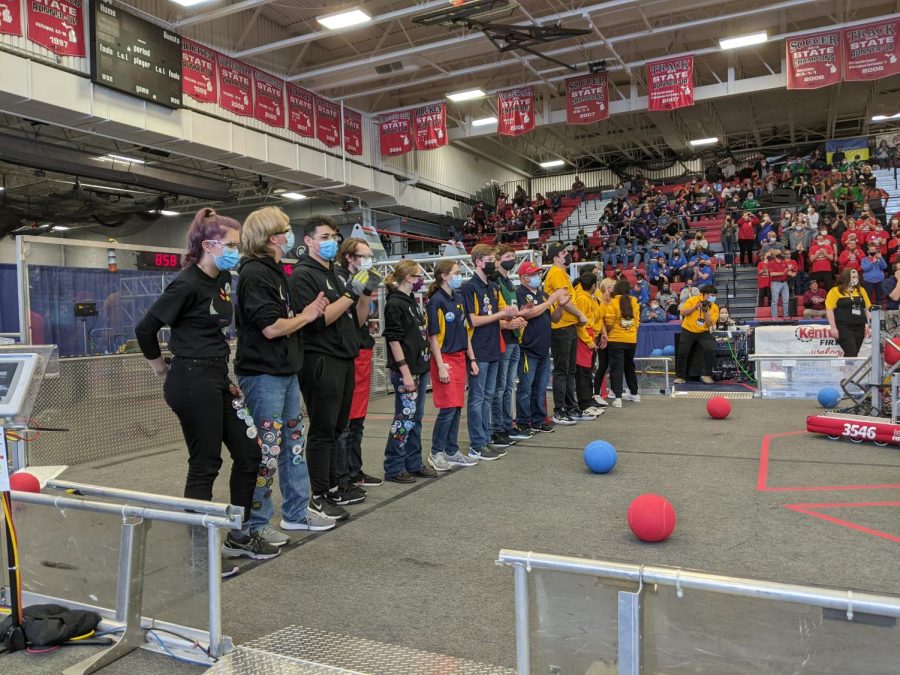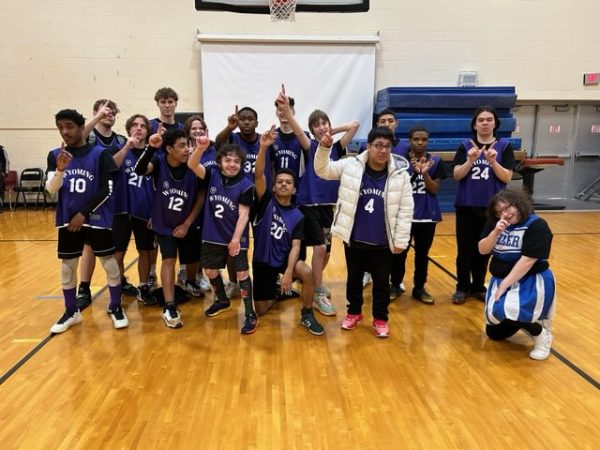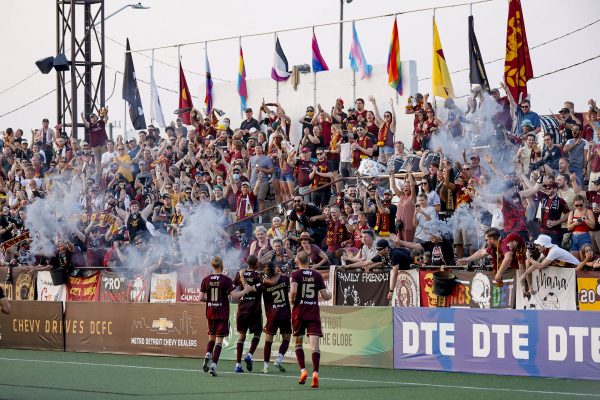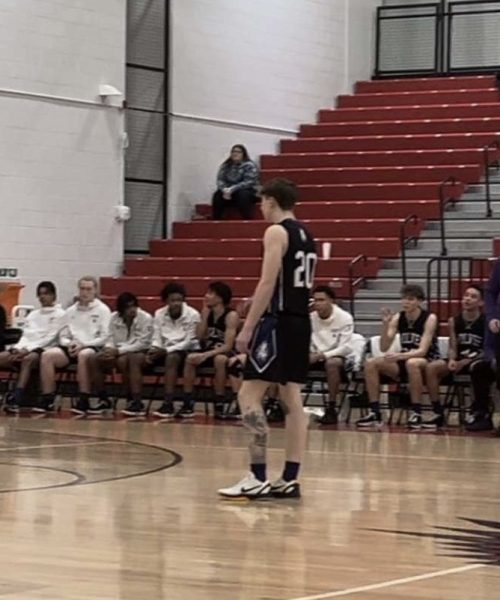FIRST: Promoting STEM Through Competitive Sport
FRC team Demons Robotics 858 and their alliance partners 3546 Buc’N’Gears and 245 Adambots lined up next to each other before the 2022 East Kentwood competition finals.
When someone thinks of sports, the first thing that comes to mind is probably something along the lines of football or basketball, maybe even soccer. Usually, robots competing against other robots aren’t in that category. However, the FIRST program aims to change the playing field, allowing any student interested to compete.
FIRST (For Inspiration and Recognition in Science and Technology) is an international program dedicated to teaching the skills necessary for the STEM field, founded by Dean Kamen and Woodie Flowers in 1989. The program consists of several leagues: FIRST Robotics Competition (FRC), FIRST Tech Challenge (FTC), and FIRST Lego League (FLL), each dedicated to a specific age group.
FRC—the league for high school students—recently had their season kickoff on January 7, revealing what teams will be doing.
After kickoff, teams are given six weeks to design, build, and test their robots before competitions start. Each team has a different way of going about this process, from being entirely student-led to heavy mentor involvement. However it’s done, a robot will usually be built by the time competitions begin.
Competitions typically have around 40 teams overall, and matches typically follow a three versus three format. Teams are randomly put into alliances to work together and rack up the most points by accomplishing the tasks set by that season’s game. Every year there’s different goals that teams need to meet in order to win, giving way to innovative design in the robots made.
One of the key values of FIRST, coined by Flowers, is that of “gracious professionalism”. The idea is based on the principle of wanting to compete with every team at their best, and cooperating with others no matter personal biases. There’s a unique culture in FIRST competitions due to gracious professionalism that’s not seen in most other sports. It’s almost expected to help out another team in need, and there’s even an award to recognize teams who go above and beyond to demonstrate the principle.
FIRST, while not a typical athletic sport, still brings the same energy that many have. The teamwork needed both in the lab building robots and on the field competing is critical to success. There’s strategy involved in how teams design robots and how alliances work together, as well as hard work that goes into even building the robots. FIRST provides valuable skills for all students involved, be it related to STEM, marketing and business, or even just communication.







